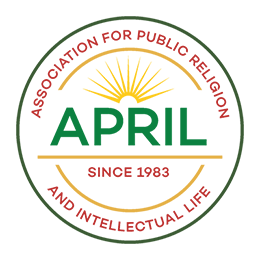A photo essay by Robert Knight
Every Mosque Between JFK and Syracuse, NY is a handmade accordion-fold book which presents images of 81 mosques along the route beginning at John F. Kennedy airport in Queens, NY and following the main highway system to Syracuse, NY. Hand-printed letterpress covers offer a simplified Google map of the region and a vellum slip cover incorporates Google’s icon for mosque at the particular location of each image in the book.
The premise of the book is to visually present the path, and the potential communities along the way, that a recent Muslim refugee or immigrant might consider after their arrival in the United States. Syracuse (and the central New York region generally) is an area that has welcomed refugees in recent decades, many of whom are Muslim, and the book speaks to their experience and emphasizes the diversity and breadth of Muslim communities in New York State.
At the same time, the book’s use of Google Street View as the source for its images casts a sense of foreboding over the work, as each mosque is presented as a momentary target of a much larger and dominant corporate or governmental surveillance apparatus. The conceptual structure of the book thus reflects the conflicted approach towards refugees, and Muslims in particular, present in American politics today.
The book was partially inspired by Ed Ruscha’s seminal 1966 book, Every Building on the Sunset Strip, which utilized a slow-moving car, a bulk film loader, and a mechanized winder to rapidly and automatically capture every storefront along a mile-and-a-half section of Sunset Boulevard in West Hollywood, CA. In doing so, Ruscha gave up artistic control of the camera frame and the modernist high-art ideal of the pretentious art object. Instead, Ruscha favored a conceptual piece that embraced low-cost reproducibility and which reflected the zeitgeist of the time: the rise of a car culture, urban development and a burgeoning American consumerism.
Every Mosque develops on Ruscha’s conceit, paying homage to his genius in a number of ways, while making Ruscha’s conceptual structure contemporary and relevant once again. Unlike Ruscha’s work, Every Mosque examines a particular population (the Muslim community) across a much larger geographic region through a series of discontinuous images presented as a continuous strip.

In doing so, a viewer is presented with a typological view of contemporary American mosque architecture, with its inherent diversity, but also with its geographic isolation in what might often be considered less-desirable locations. Every Mosque’s careful hand-labor and the limited nature of the work counterbalance surveillance-style images, and resist the ominous act of being watched by insisting on the precarious state of being human.
All work at The Commons is published under Creative Commons license CC BY-NC-ND 4.0. https://creativecommons.org/licenses/by-nc-nd/4.0/

Robert Knight
Robert Knight explores the relationship between contemporary culture, architectural space and communities using photography, video, audio, and installation. Knight’s projects have been exhibited nationally and internationally, including at the Danforth Museum of Art in Massachusetts, Jen Bekman Gallery in New York, the LaGrange Museum in Georgia, The Bascom in North Carolina, the Houston Center for Photography in Texas, and at photography festivals in Nantes, Le Mans and Arles, France. His work has been the subject of recent solo exhibitions at Gallery Kayafas, Boston, MA, the Munson Williams Proctor Art Museum, Utica, NY, the Wellin Museum of Art, Clinton, NY, and the Dowd Gallery at SUNY Cortland. His art is in the collection of the Museum of Fine Arts, Boston, and numerous private collections. Knight received an MFA in photography from the Massachusetts College of Art & Design and a BA in architecture and economics from Yale University, and is currently an associate professor of art at Hamilton College in Clinton, NY.
To see more of Knight’s work, please visit: www.robertknight.com




















